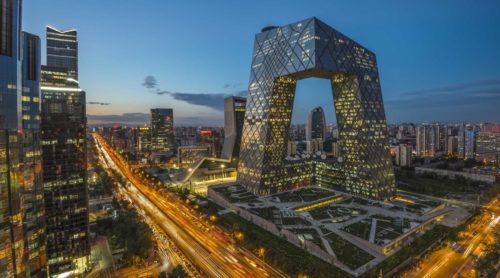
RMI Shows the Vast Potential of China’s Resource Recycling Market
RMI’s new report, Growing the Circular Economy: Opportunities for Resource Recycling in a Zero-Carbon China, quantifies the scale of the business opportunity and provides key details for investors, entrepreneurs and policymakers.
Beijing – June 10, 2021
Some of the greatest business opportunities of the 21st century come not from extracting new resources from nature, but in new uses for what we have already produced. In a new report, RMI looks at the vast potential for resource recycling in China and shows how it can serve as an important component of reaching the nation’s zero-carbon goal.
Growing the Circular Economy: Opportunities for Resource Recycling in a Zero-Carbon China quantifies the market opportunity across nine key segments, from scrap steel and plastics to biomass and EV batteries, finding a ¥3 trillion potential market in 2050. This includes both quantitative and qualitative analyses of each of these segments, looking at the current state of the market and addressing issues such as resource availability, existing policy supports and the potential for greenhouse gas mitigation.
As explored in previous analyses, resource recycling is one of the most effective and least expensive means of decarbonization, because it reduces demand for primary products and services at the source. The study finds that through utilizing resource recycling in three main sectors—energy-intensive industries, biomass waste for energy, and recycling of EV batteries—China could achieve nearly 40 gigatons of CO2 emissions reductions between now and 2050.
The report also looks at the big picture of how resource recycling can help transform the way we do business. It explores how the development of resource recycling industries can help shift business ecosystems toward a circular economy with greater efficiency, lower emissions and reduced waste.
“Driving the accelerated development of the resource recycling industry will not only support China to peak its carbon emissions as soon as possible and further lay a solid foundation for the eventual carbon neutrality, but also promote industrial update and create new markets in multiple segments including supply, consumption and ancillary services, generating huge commercial value.” Said Ji Chen, principal of RMI, main author of the report.
“Circular economy development is an economic growth model that is aligned with sustainable development,” notes Ting Li, regional managing director and chief representative of RMI’s Beijing office. “Driven by the carbon-neutrality goal, this model will bring new challenges and opportunities to China. RMI hopes to collaborate with partners, explore new opportunities and seek new solutions to accelerate China’s realization of its carbon-neutrality goal.”
Growing the Circular Economy can serve as a starting point for investors, entrepreneurs and policymakers to explore the immense possibilities of resource recycling in China. The report provides essential information to help form a basis for thinking about both business and political approaches to this market.
RMI simultaneously released this report at a seminar held by the China Association of Circular Economy.
Media Inquiries please contact:
Alex Chin, Associate – Media Relations, T: +1 973-262-0002, E: achin@rmi.org
About RMI
Rocky Mountain Institute (RMI) is an independent, nonpartisan nonprofit founded in 1982 that transforms global energy systems through market-driven solutions to secure a prosperous, resilient, clean energy future for all. In collaboration with businesses, policymakers, funders, communities, and other partners, RMI drives investment to scale clean energy solutions, reduce energy waste, and boost access to affordable clean energy in ways that enhance security, strengthen the economy, and improve people’s livelihoods. RMI is active in over 60 countries.
More information on RMI can be found at www.rmi.org or follow us on Twitter @RockyMtnInst.
